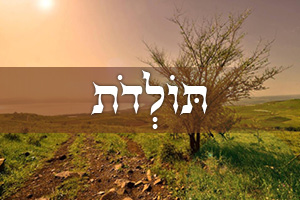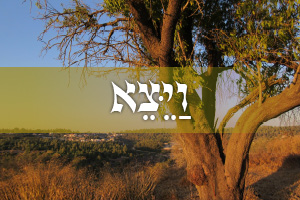Vayera
(Exodus, 6:1-10:35)

The main personality in this week’s Torah portion is our forefather Abraham. He is the central character though not the only one. There are others who accompany him on his geographical and philosophical journeys - Sarah, his wife; Isaac and Ishmael, his sons; and also Lot, his nephew.
G-d tells Moses to say to the Children of Israel, “I will bring you into the land which I swore to give to Abraham, Isaac, and Jacob, and I will give it to you for a possession, I the Lord. But when Moses told this to the Children of Israel, they would not listen to Moses for their spirits were crushed by cruel bondage.” (6:8-6:9)
THOUGHT AND DISCUSSION QUESTIONS
- Were we truly there in Egypt as slaves, would we have heeded Moses?
- Would we have joined Moses in demanding Pharaoh let us go?
- Would we have left our bondage, albeit oppressive and difficult, but also known and predictable in order to follow a man with a speech impediment out into the unknown and risky desert in the hopes of reaching some far away place where our ancestors once lived?
As we all know, the Children of Israel did leave Egypt. But, it wasn’t only faith or a sense of responsibility that compelled them. Rather, it took the ten plagues and Pharaoh himself practically kicking them out for the Children of Israel to finally leave Egypt and take their first steps toward the Promised Land.
‘And the two of them went together... And the two of them went together’ (Genesis 22:6, 8)
Abraham received the command directly from God, which made his acquiescence almost understandable; Isaac is even more praiseworthy, because he only heard the command from his father, yet he was still willing to submit himself to the sacrificial act. In doing so, Isaac becomes the paragon of the ideal Jewish heir, who continues the traditions of his father even though he cannot be certain of their truth because he himself has not heard the Divine command.
Why must scripture tell us that Terah had originally set out for the Land of Canaan if he never reached it because he died on the way in Haran? The Bible will soon record a fascinating meeting between Abraham and Melchizedek, king of Shalem (Jerusalem, capital city of Canaan, see Ramban ad loc), and the text goes on to identify him as a “priest of God Most High” to whom Abraham gives tithes (Gen. 14:18, 19, 20).
- Is it not logical to assume that there was one place in the world where the idea of a single God who had created the world and created the human being in His own image was still remembered from the time of Adam, and that place was Jeru-Shalem, Canaan, Israel?
- And if Terah had left Ur of Kasdim to reach Canaan, might it not have been because he wanted to identify with that land and with that God of ethical monotheism?
- And if Abraham, Terah’s son, had joined his father in the journey – while Nahor had not – may we not assume that Abraham identified with his father’s spiritual journey even though his brother did not?
From this perspective, we understand why this story is followed by God’s command to Abraham: Conclude the journey you began with your father and reach the destination, and perhaps the destiny, which unfortunately eluded him.
Abraham, then, emerges as the true continuator of his father’s mission. The biblical message, through the lives of Abraham, Isaac and Jacob, is that it behooves us to continue in our parents’ footsteps and to pass down the mission of ethical monotheism from generation to generation. Indeed, we must even attempt to improve upon their vision and accomplishments and to take proper advantage of the new possibilities the unique period in which we live may provide for us. By Rav Shlomo Riskin
Lot, Abraham’s nephew, is with him from the moment he embarks on his journey toward the Land of Canaan, the land later promised to Abraham which will be called the Land of Israel, or Eretz Yisrael. He also goes south with him to Egypt during the famine, and afterward Lot returns with Abraham to Canaan, where our story reaches a turning point. Tension arises in the relationship between Abraham and Lot, which is expressed in the disputes between their shepherds. Abraham, recognizing that the dispute stems from their different characters, suggests that they part ways, and invites Lot to choose the most fertile place in Canaan during those days – Sodom.
Avraham feeds strangers and prays for the immoral city of Sedom. Amon and Mo’av, descendants of Lot, betray these values by denying help to the vulnerable and gratuitously cursing them.[7] How could they possibly join a covenant whose founding vision is “that he may command his children and his household after him, that they may keep the way of God to do righteousness and justice” (Bereishit 18:19)?
Conventional wisdom holds that acceptance of mitzvot is a problematic hurdle that blocks an otherwise clear and easy path towards Jewish citizenship. The lesson of Canaanite slaves (according to the Rambam), Amonites, Moabites, Netinim and others, though, is that being counted among the progeny of Avraham is an extraordinary privilege that even the most pious of converts may not be granted.
Citizenship amongst the people of Avraham is a precious commodity indeed that perhaps deserves more respect than it currently garners. According it such may lead us to reformulate the exact question we want to ask regarding the proper response to contemporary demographics in Israel. Rav Dr. Judah Goldberg, Excerpted








